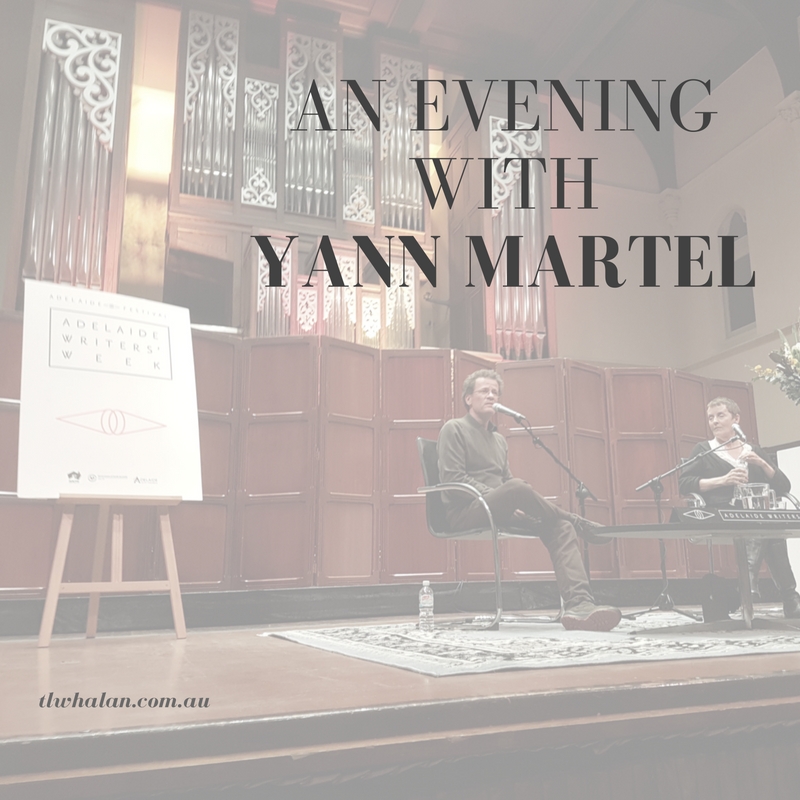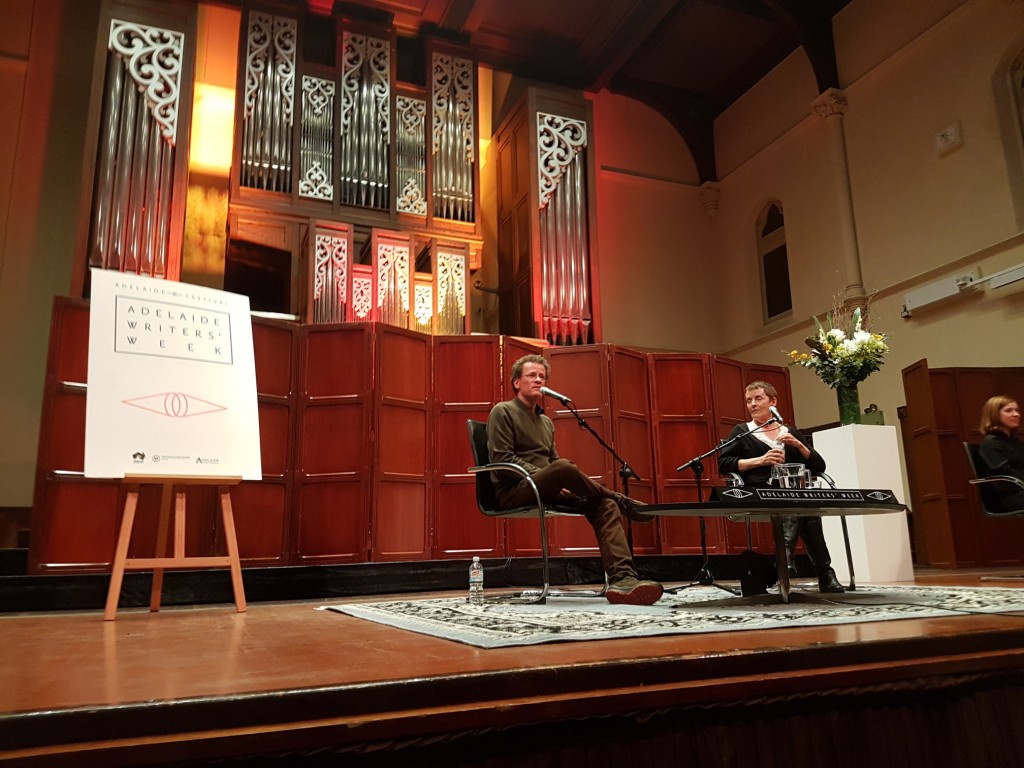
As part of Adelaide Writers’ Week, I attended an author talk with Yann Martel, author of Life of Pi (though this particular sitting was titled Mountains of Portugal after his most recent work).
Martel describes Mountains of Portugal as three stories about grief.
It was my first time attending an event like this, and I loved it. Martel is a fascinating speaker. He started by saying,
My parents replaced religion with art.
No wonder Martel writes such literary fiction when he can talk the way he does!
On His Writing Inspiration
He described his writing process as,
Every book I’ve written is an attempt to understand something… I became a writer to understand where I might fit into the world.
That quote resonated strongly with me because that is much like my writing. It starts with an idea, “I wonder what it’d be like to…” and in order to understand the concept, a whole novel is born.
Happy people don’t necessarily have stories to tell.
Martel begins his story with suffering or a change of routine. These events act as a catalyst to all the events seen in the novel.
Martel on Animals
Martel was asked about his use of animals in his fiction work. Specifically, why? He explained that animals are versatile characters that don’t bring preconceived ideas (he used the example that if he said there was a dentist, you would instantly form an image in your mind – but if he said that it was a dentist who also happened to be a rhinoceros, you would have no stereotypes about what this dentist would be like, and in fact you may be more interested in the story). The natural next step is that the reader will try to understand how that animal works as a symbol and, in doing so, the reader hopefully becomes less cynical about the piece. If the reader is less cynical, they can be more open about the piece.
Martel said that, in the past, animals were used quite a lot as characters and symbols in stories. He cited a number of titles, included Josephine the Singer, or the Mouse Folk. But these days, “The use of animals in literature has almost disappeared” said Martel.
Martel on Religion
Despite our superiority as a species, we are dissatisfied, [while] animals are like running around Buddhist monks.
Martel used the example of a dog. A dog doesn’t dwell on the past, nor does he extensively conceptualise the future – instead he is totally in the present.
In Martel’s mind, animals and religion are often present together.
He talked about hoe the bible should be read in a literary/symbolic way – not in a literal way.
I also liked the below quote and am including it even though it doesn’t entirely flow with everything else:
Organised religion asks that you leave behind your ego.

Martel on Beatrice and Virgil
I have a brother and therefore I know what war is about.
Martel fielded a question from the audience about his novel Beatrice and Virgil, about the holocaust.
Martel explained that he was always interested in the holocaust, but notes that the genocide is almost always depicted in non-fiction writing. (For example, the most well known story of the holocaust is The Diary of Anne Frank.) Each story on the holocaust is told in the same way, with the same characters. This lead to him asking himself,
Why are we so limited in the way we talk about the holocaust?
In Martel’s opinion, the holocaust is just like any war, and so we should speak about it in different ways. He asked,
Do we lose something by limiting the way we talk about the holocaust?
If we exclude, for example, humour, we lose a way of storytelling.
In this way, Martel justified his novel as simply a different way of talking about the Holocaust, and that different story telling is likely to bring about different understandings and feelings about the topic.
Conclusion
Overall, I would describe Martel as an overwhelmingly complex thinker. The way he presented his thoughts were very organised and meticulous. As I listened to him, I kept thinking to myself that if his speech was so poetic it was little wonder that his writing is, too.